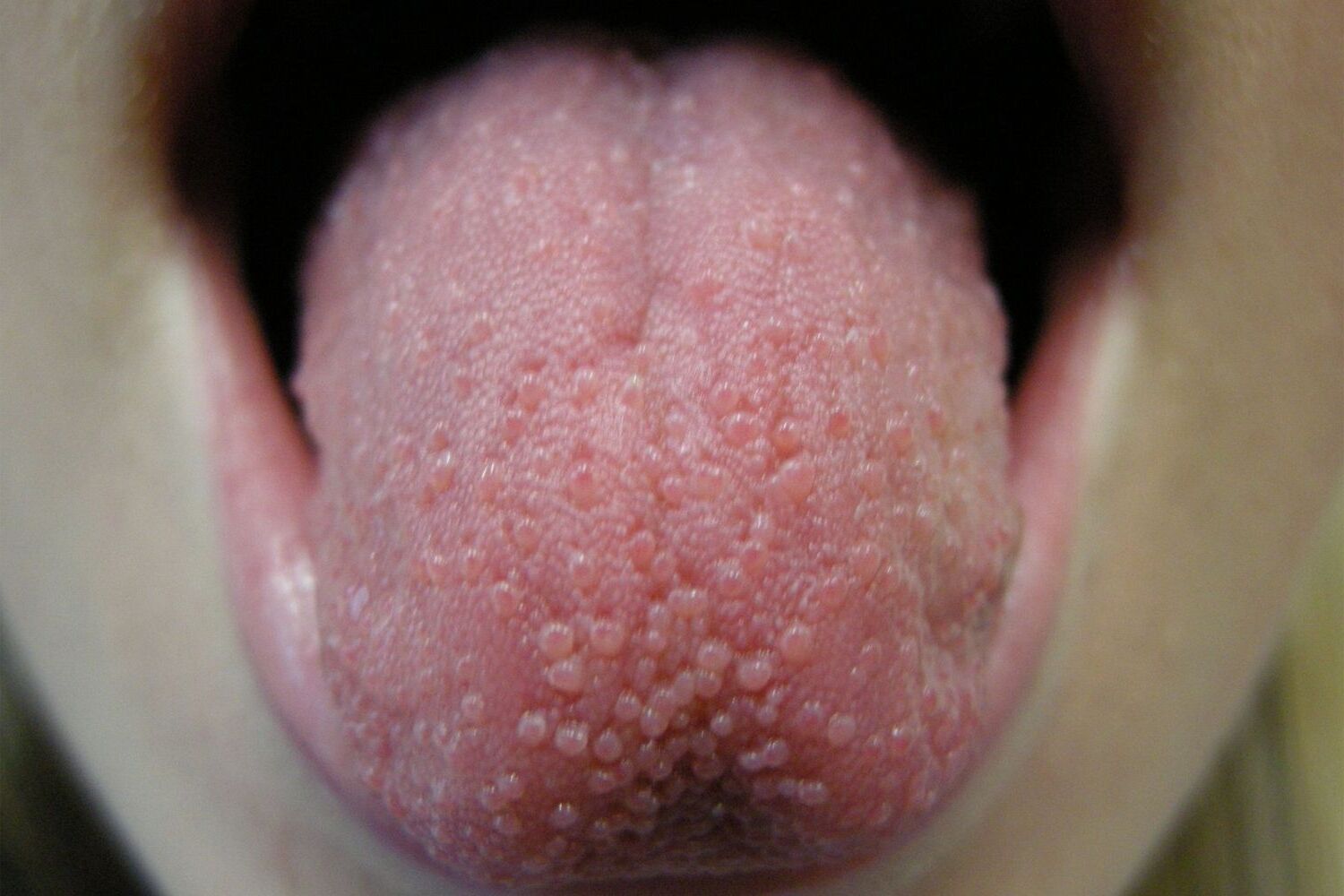
Papillitis of the lingual papillae might sound like a mouthful, but it's a common condition that many people experience without even knowing its name. Ever had those annoying, swollen bumps on your tongue that make eating and talking uncomfortable? Those are inflamed lingual papillae, often called "lie bumps." They can be caused by various factors like stress, minor injuries, or even certain foods. While usually harmless, they can be quite a nuisance. In this post, we'll dive into 25 intriguing facts about this condition, shedding light on its causes, symptoms, and treatments. Get ready to become a mini-expert on this tongue-twisting topic!
Key Takeaways:
- "Lie bumps" on the tongue, known as Transient Lingual Papillitis, can be triggered by stress, tongue injuries, or spicy foods. Good oral hygiene and saltwater rinses can help manage the discomfort.
- Transient Lingual Papillitis is not contagious, affects all ages, and usually resolves on its own. Avoiding triggers and maintaining oral health can help prevent recurrent episodes.
What is Papillitis of the Lingual Papillae?
Papillitis of the lingual papillae, also known as transient lingual papillitis (TLP), is a common condition affecting the tongue. It can cause discomfort but is generally harmless. Let's dive into some fascinating facts about this condition.
-
Transient Lingual Papillitis (TLP) is the medical term for this condition. It refers to the inflammation of the small bumps on the tongue known as papillae.
-
Commonly Known as "Lie Bumps", this condition has earned its nickname from the old wives' tale that lying causes these bumps to appear.
-
Affects the Fungiform Papillae, which are the small, mushroom-shaped bumps on the top and sides of the tongue. These papillae contain taste buds.
-
Symptoms Include Pain and Swelling. People often experience a painful, swollen bump on their tongue, which can be quite sensitive.
-
Usually Short-Lived. The condition typically lasts only a few days, hence the term "transient."
-
Exact Cause Unknown. While the precise cause remains unclear, factors like stress, minor trauma, or certain foods might trigger it.
What Triggers Papillitis of the Lingual Papillae?
Understanding what might trigger this condition can help in managing and preventing it. Here are some common triggers:
-
Stress is a significant factor. Emotional stress can lead to various physical symptoms, including TLP.
-
Minor Tongue Injuries. Biting your tongue or irritation from sharp foods can cause these bumps to appear.
-
Spicy or Acidic Foods. Consuming foods that are too spicy or acidic can irritate the tongue, leading to inflammation.
-
Allergic Reactions. Sometimes, an allergic reaction to certain foods or substances can cause TLP.
-
Poor Oral Hygiene. Not maintaining good oral hygiene can lead to various oral health issues, including TLP.
How is Papillitis of the Lingual Papillae Diagnosed?
Diagnosis is usually straightforward and involves a simple examination of the tongue. Here are some key points:
-
Visual Examination. A healthcare provider can often diagnose TLP just by looking at the tongue.
-
Patient History. Discussing recent activities, diet, and stress levels can help identify potential triggers.
-
No Need for Tests. Typically, no lab tests or imaging studies are required to diagnose TLP.
-
Differentiating from Other Conditions. It's important to distinguish TLP from other conditions like oral thrush or geographic tongue, which may require different treatments.
Treatment and Management of Papillitis of the Lingual Papillae
While TLP usually resolves on its own, certain treatments can help alleviate symptoms and speed up recovery.
-
Saltwater Rinses. Gargling with saltwater can help reduce inflammation and pain.
-
Avoiding Irritants. Steering clear of spicy, acidic, or sharp foods can prevent further irritation.
-
Good Oral Hygiene. Brushing and flossing regularly can help maintain oral health and prevent TLP.
-
Over-the-Counter Pain Relief. Medications like ibuprofen or acetaminophen can help manage pain.
-
Topical Treatments. Applying a topical oral gel can provide relief from pain and swelling.
Interesting Facts About Papillitis of the Lingual Papillae
Here are some lesser-known facts that might surprise you:
-
Not Contagious. TLP is not an infectious condition, so it cannot be spread from person to person.
-
Affects All Ages. People of any age can develop TLP, although it is more commonly reported in adults.
-
No Long-Term Effects. TLP does not cause any long-term damage to the tongue or overall health.
-
Can Recur. Some individuals may experience recurrent episodes of TLP, especially if they are prone to the triggers.
-
No Specific Cure. Since TLP is self-limiting, there is no specific cure, but symptom management is effective.
Final Thoughts on Papillitis of the Lingual Papillae
Papillitis of the lingual papillae, often called lie bumps, is more common than you might think. These small, painful bumps on the tongue can be caused by various factors like stress, injury, or certain foods. While they can be annoying, they usually resolve on their own within a few days. Maintaining good oral hygiene and avoiding irritants can help prevent these bumps. If they persist or frequently recur, it’s wise to consult a healthcare professional to rule out underlying conditions. Understanding the causes and treatments can make dealing with lie bumps less stressful. So next time you feel that tiny bump on your tongue, remember it’s usually harmless and temporary. Stay informed, take care of your oral health, and you’ll likely keep those pesky bumps at bay.
Frequently Asked Questions
Was this page helpful?
Our commitment to delivering trustworthy and engaging content is at the heart of what we do. Each fact on our site is contributed by real users like you, bringing a wealth of diverse insights and information. To ensure the highest standards of accuracy and reliability, our dedicated editors meticulously review each submission. This process guarantees that the facts we share are not only fascinating but also credible. Trust in our commitment to quality and authenticity as you explore and learn with us.
